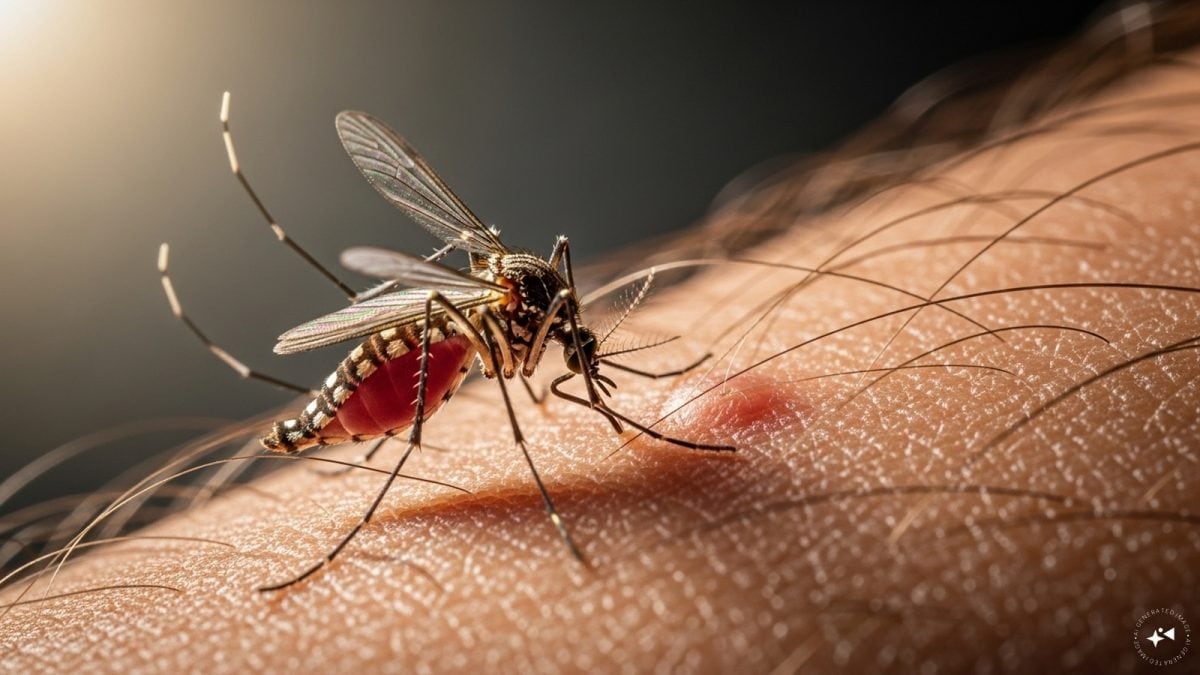Last Updated:
Dengue can resemble a regular viral fever, making it challenging to differentiate. However, the distinguishing markers are more persistent and severe.

Early detection and medical advice are crucial for effective dengue management.
With every monsoon, several parts of India brace for a spike in viral fevers, particularly dengue. While most viral fevers are mild and self-limiting, dengue can progress rapidly and become debilitating if not caught early. The difference between a mild recovery at home and a hospital admission often lies in timely recognition of symptoms.
“Early recognition and timely treatment remain the best option available currently for lessening the potential morbidity from these illnesses,” explained Dr. Anirban Chattopadhyay, Critical Care Specialist, CMRI Kolkata.
Recognising the Early Warning Signs Of Dengue
In the first few days, dengue can mimic a regular viral fever, making it difficult to differentiate. “Symptoms may include high-grade fever, severe headaches, nausea, malaise and debilitating body aches,” said Dr. Chattopadhyay. The distinguishing markers, however, are more persistent and severe: eye pain, rashes, and most importantly, a drop in platelet count (thrombocytopenia).
In some cases, patients may notice gum bleeding, nosebleeds, or red spots on the skin. “These are unmistakable red flags and must prompt an immediate visit to the emergency room,” he warned.
Why Early Consultation Matters
Seeking medical advice at the very onset of fever is critical. “There are different forms of dengue, and early diagnosis allows for effective management through hydration, observation, and supportive treatment by preventing progression to Dengue Hemorrhagic Fever or Dengue Shock,” Dr. Chattopadhyay emphasised.
He also cautioned against self-medication. “Avoid drugs like ibuprofen or aspirin, as they can worsen bleeding risks in dengue patients. A simple blood test can confirm the diagnosis.”
Monitoring and Home Care
For those with fever, keeping track of temperature, hydration, urine output, and energy levels is essential. “While awaiting consultation, patients should rest, take paracetamol for fever, and maintain adequate fluid intake,” Dr. Chattopadhyay advised. Any worsening of symptoms, such as severe abdominal pain, persistent vomiting, drowsiness, or difficulty in breathing, warrants urgent hospital assessment.
Prevention Is Better Than Cure
As with all vector-borne and viral illnesses, prevention plays a huge role. “Preventing mosquito bites, eliminating stagnant water, and using repellents are key in reducing dengue risk,” he said.
For viral fevers in general, hand hygiene, masking in crowded areas, and maintaining good nutrition help build immunity.
At the core of dengue management lies awareness. “Early detection reduces the severity of illness, shortens recovery times, and leads to safer outcomes,” Dr. Chattopadhyay concluded. By watching for warning signs, avoiding self-medication, and prioritising prevention, individuals can protect themselves and their families this monsoon.
- Location :
Delhi, India, India








